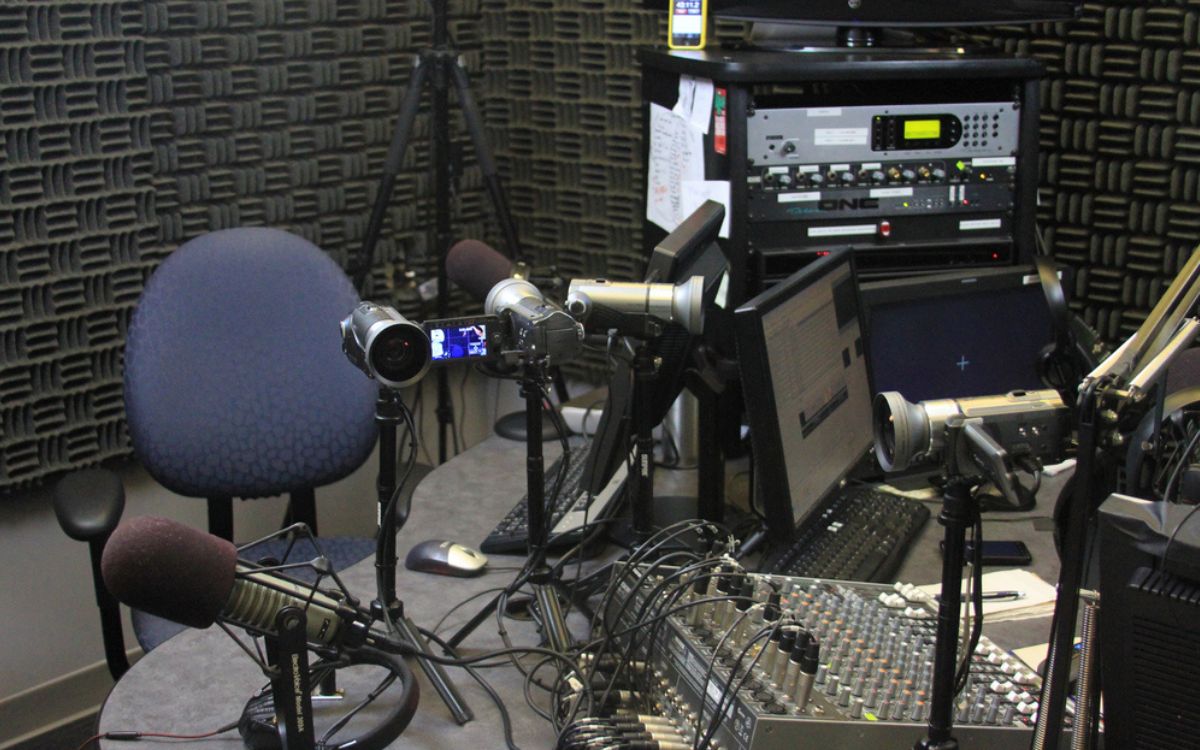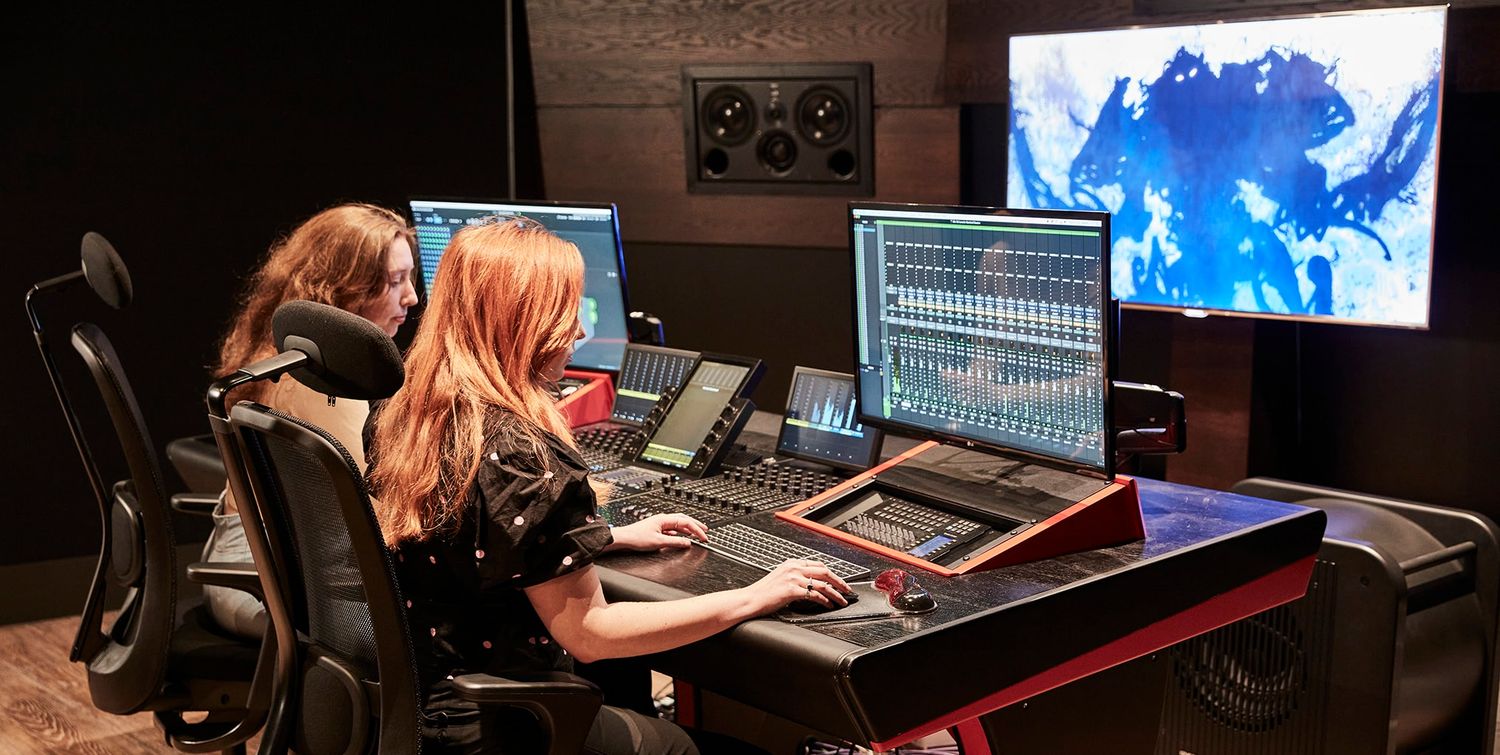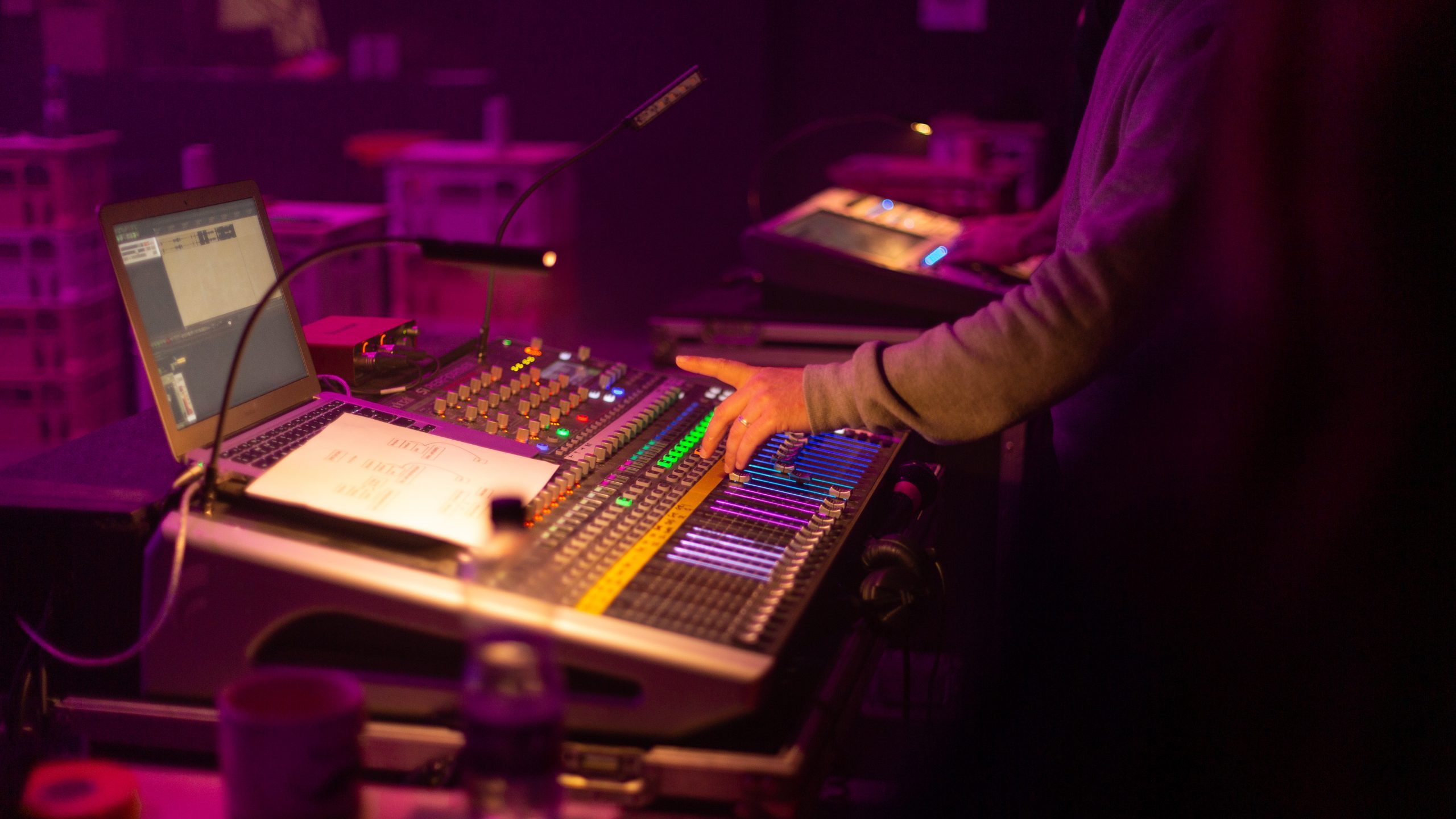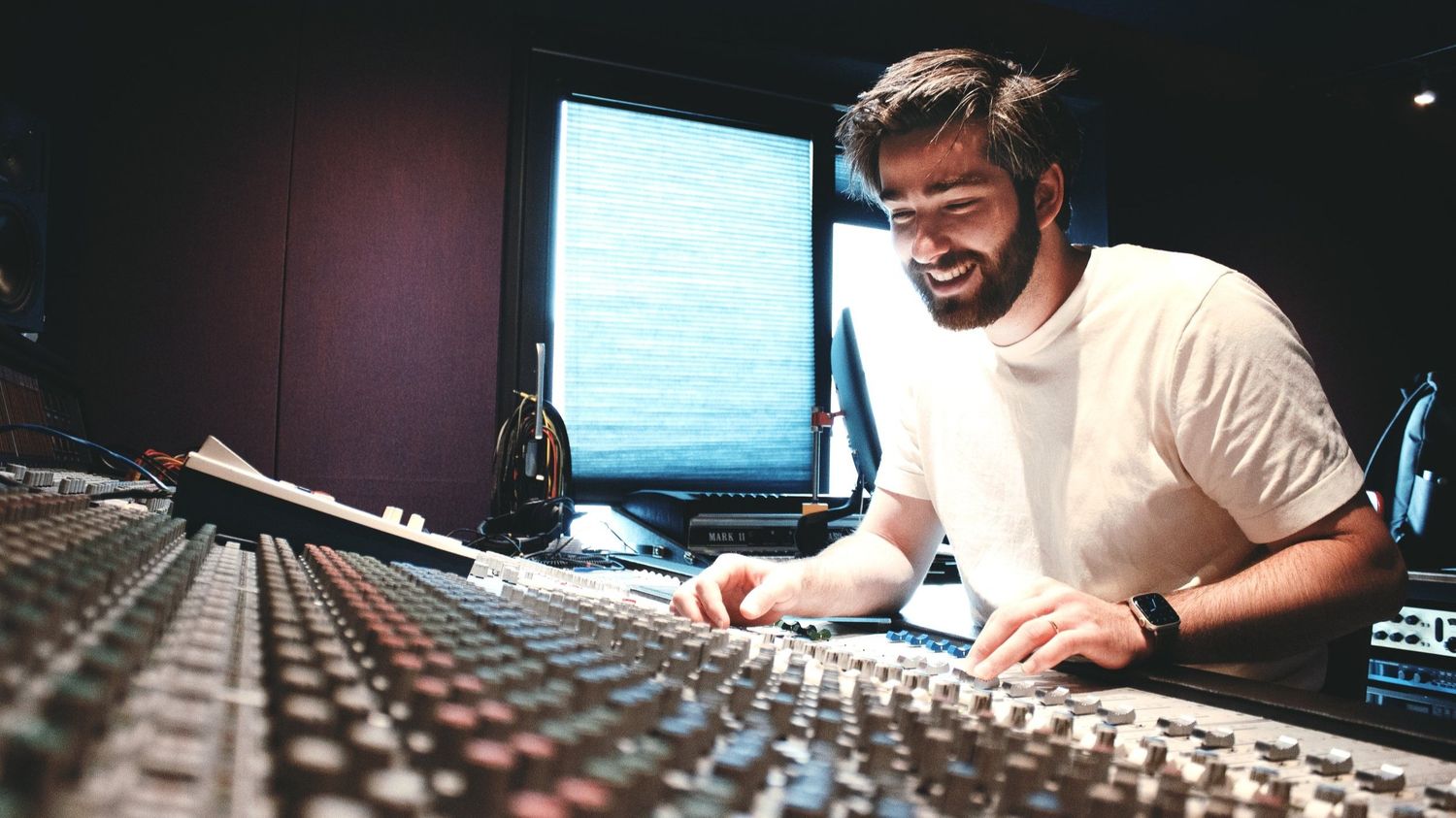Home>Production & Technology>Sound Engineer>What Do You Need To Do To Become A Sound Engineer
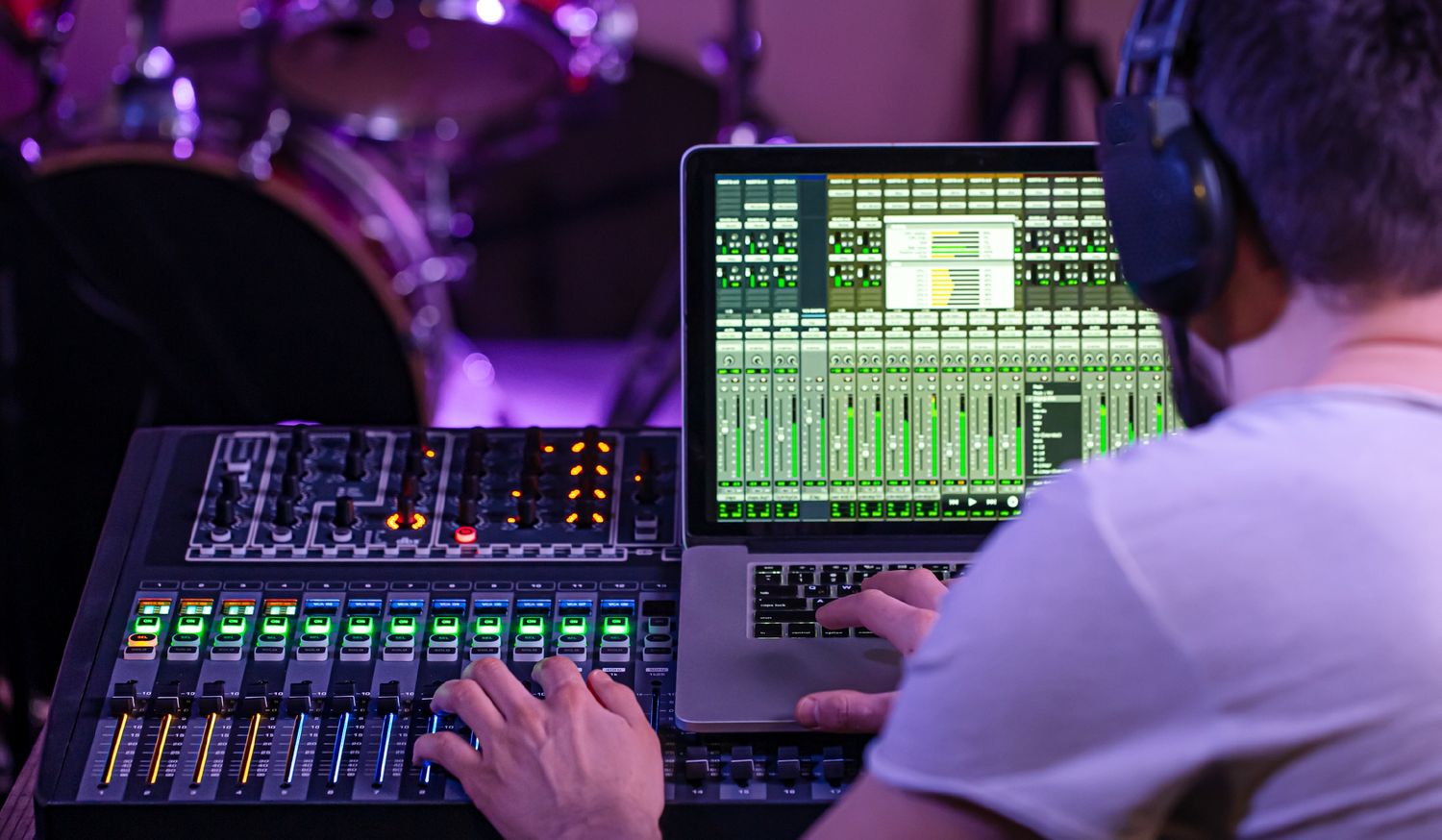

Sound Engineer
What Do You Need To Do To Become A Sound Engineer
Modified: March 7, 2024
Discover the essential steps to become a successful sound engineer. Learn about the skills, education, and experience needed to excel in this dynamic field.
(Many of the links in this article redirect to a specific reviewed product. Your purchase of these products through affiliate links helps to generate commission for AudioLover.com, at no extra cost. Learn more)
Table of Contents
Introduction
Becoming a sound engineer is a captivating journey that merges technical expertise with artistic expression. Sound engineers, also known as audio engineers, play a pivotal role in the music, film, television, and live event industries. They are the masterminds behind the scenes, sculpting and refining sound to create immersive and impactful experiences for audiences. If you're passionate about music, technology, and the magic of sound, pursuing a career as a sound engineer could be an exhilarating path for you.
The role of a sound engineer is multifaceted, encompassing a diverse range of responsibilities. From capturing the perfect guitar riff in a recording studio to orchestrating the seamless audio transitions at a live concert, sound engineers are the architects of auditory excellence. Their expertise extends to mixing and mastering tracks, setting up sound systems, operating recording equipment, and troubleshooting technical issues. In essence, they are the sonic storytellers who bring music and sound to life.
In this article, we will delve into the essential components of becoming a proficient sound engineer. From the educational and technical requirements to the personal qualities that set exceptional sound engineers apart, we will explore the multifaceted journey of embarking on this dynamic career path. Whether you aspire to work in a state-of-the-art recording studio, shape the audio landscape of blockbuster films, or engineer electrifying live performances, this guide will illuminate the steps you need to take to realize your ambitions in the realm of sound engineering.
As we navigate through the intricacies of this profession, it's important to recognize that the path to becoming a sound engineer is not solely defined by technical prowess. While technical skills are undoubtedly crucial, a successful sound engineer also possesses a blend of creativity, adaptability, and a deep understanding of the industry. By embracing the fusion of art and science, sound engineers have the power to elevate the impact of sound and music, leaving an indelible imprint on the experiences of audiences worldwide.
Education and Training
Embarking on the journey to become a sound engineer often begins with a solid foundation in education and training. While there are alternative paths to entering this field, acquiring formal education in audio engineering or a related discipline can provide invaluable knowledge and hands-on experience. Here's a comprehensive look at the educational and training aspects that can pave the way for a successful career in sound engineering:
Academic Pursuits
Attending a reputable audio engineering program at a technical school, community college, or university can equip aspiring sound engineers with a comprehensive understanding of sound theory, recording techniques, acoustics, and digital audio workstations (DAWs). These programs often offer a blend of classroom instruction and practical training, allowing students to hone their skills in recording studios, live sound environments, and post-production facilities.
Specialized Courses
In addition to formal degree programs, specialized courses and workshops focused on audio engineering, music production, and sound design can provide targeted training in specific areas of interest. These courses may delve into advanced mixing techniques, sound synthesis, signal processing, and the use of industry-standard software and hardware. By enrolling in these courses, aspiring sound engineers can expand their technical proficiency and stay abreast of the latest advancements in audio technology.
Internships and Apprenticeships
Gaining hands-on experience through internships and apprenticeships at recording studios, live sound companies, or post-production facilities is a pivotal aspect of sound engineering education. These opportunities allow aspiring sound engineers to work alongside seasoned professionals, observe real-world audio production processes, and apply their skills in a professional setting. The mentorship and practical insights gained during internships can be instrumental in shaping a budding sound engineer's career trajectory.
Continuous Learning
The field of sound engineering is dynamic and constantly evolving, driven by technological innovations and shifting industry standards. As such, a commitment to lifelong learning is essential for sound engineers to stay competitive and adaptable. Engaging in continuous education through workshops, online courses, and industry conferences enables sound engineers to refine their skills, explore emerging trends, and expand their professional network.
By pursuing a well-rounded education, seeking specialized training opportunities, and embracing continuous learning, aspiring sound engineers can lay a robust groundwork for a fulfilling and prosperous career in the realm of audio engineering. These educational and training endeavors not only cultivate technical expertise but also instill the creative and problem-solving mindset essential for excelling in the multifaceted domain of sound engineering.
Technical Skills
Technical skills form the bedrock of a sound engineer's expertise, encompassing a diverse array of competencies that are indispensable for excelling in this dynamic field. From proficiency in operating audio equipment to a deep understanding of sound manipulation techniques, sound engineers must possess a comprehensive skill set to navigate the intricacies of audio production and engineering. Here's an in-depth exploration of the technical skills that are fundamental for aspiring sound engineers:
Proficiency in Audio Equipment
A sound engineer's proficiency in operating and maintaining audio equipment is paramount. This includes a thorough understanding of microphones, mixing consoles, amplifiers, signal processors, and recording devices. Mastery of these tools enables sound engineers to capture, process, and manipulate sound with precision, ensuring optimal audio quality across diverse settings, from recording studios to live concert venues.
Sound Editing and Mixing
Sound engineers must possess advanced skills in sound editing and mixing, allowing them to craft and refine audio recordings with finesse. Proficiency in digital audio workstations (DAWs) such as Pro Tools, Logic Pro, or Ableton Live is essential. These platforms empower sound engineers to edit, arrange, and mix audio tracks, applying effects, equalization, and spatial enhancements to achieve the desired sonic aesthetic.
Acoustics and Sound Design
A deep understanding of acoustics and sound design principles is pivotal for sound engineers. This encompasses knowledge of room acoustics, sound propagation, and spatial audio techniques. Sound engineers leverage this expertise to optimize acoustic environments, design immersive soundscapes, and mitigate acoustic challenges in diverse settings, ensuring optimal sound reproduction and fidelity.
Live Sound Reinforcement
For sound engineers involved in live event production, proficiency in live sound reinforcement is imperative. This includes expertise in setting up and calibrating sound systems, managing stage monitors, and executing seamless audio transitions during live performances. The ability to adapt to varying venue acoustics and deliver exceptional sound quality in real-time is a hallmark of a proficient live sound engineer.
Troubleshooting and Technical Proficiency
Sound engineers must possess strong troubleshooting skills and technical proficiency to address equipment malfunctions and unforeseen audio issues effectively. This entails a comprehensive understanding of audio signal flow, equipment connectivity, and the ability to diagnose and resolve technical challenges swiftly, ensuring uninterrupted audio production and delivery.
Immersive Audio Technologies
With the emergence of immersive audio formats such as Dolby Atmos and Ambisonics, sound engineers are increasingly required to possess expertise in spatial audio technologies. This includes proficiency in spatial audio capture, processing, and mixing, enabling sound engineers to create captivating three-dimensional auditory experiences across various media platforms.
By honing these technical skills, aspiring sound engineers can fortify their foundation in audio engineering, positioning themselves for success in a dynamic and ever-evolving industry. The fusion of technical proficiency with creative ingenuity empowers sound engineers to shape the sonic landscape, captivate audiences, and leave an indelible mark on the world of sound and music.
Industry Knowledge
Industry knowledge is a cornerstone of a sound engineer's expertise, encompassing a deep understanding of the evolving landscape of audio production, technological advancements, and industry best practices. Aspiring sound engineers must immerse themselves in the intricacies of the music, film, television, and live event industries, gaining insights into the prevailing trends, standards, and emerging technologies that shape the audio engineering domain.
Familiarity with Industry Standards
A sound engineer's proficiency extends to staying abreast of industry standards and best practices. This includes a comprehensive understanding of audio formats, signal processing techniques, and quality benchmarks that govern audio production across various mediums. Familiarity with industry standards empowers sound engineers to uphold audio quality, compatibility, and compliance with prevailing industry norms.
Technological Advancements
The realm of audio engineering is perpetually influenced by technological advancements. Sound engineers must be attuned to the latest developments in audio recording, processing, and delivery technologies. This encompasses staying informed about cutting-edge audio equipment, software innovations, and emerging audio formats, enabling sound engineers to leverage technological advancements to elevate the quality and creativity of their audio productions.
Market Trends and Audience Preferences
Understanding market trends and audience preferences is pivotal for sound engineers working across diverse media platforms. Whether contributing to music production, film soundtracks, or live event audio, sound engineers benefit from insights into evolving market demands and audience expectations. This knowledge empowers sound engineers to tailor their audio productions to resonate with diverse audiences, aligning with prevailing trends and preferences.
Legal and Ethical Considerations
A comprehensive grasp of legal and ethical considerations within the audio engineering industry is essential. This encompasses knowledge of copyright laws, licensing requirements, and ethical practices governing audio production and distribution. Sound engineers must navigate intellectual property rights, licensing agreements, and ethical considerations to ensure compliance and integrity in their audio engineering endeavors.
Industry Networking and Collaboration
Building a robust network within the audio engineering industry is instrumental for sound engineers. Engaging with industry professionals, artists, producers, and fellow sound engineers fosters collaborative opportunities, knowledge exchange, and professional growth. Networking enables sound engineers to stay connected with industry trends, access collaborative projects, and forge meaningful connections that can propel their careers forward.
By cultivating a deep understanding of industry standards, technological advancements, market trends, legal considerations, and fostering a strong professional network, aspiring sound engineers can fortify their industry knowledge. This multifaceted expertise equips sound engineers to navigate the complexities of the audio engineering landscape, innovate with confidence, and contribute to the sonic tapestry of the entertainment industry.
Networking and Experience
Networking and hands-on experience are pivotal components in the journey of becoming a proficient sound engineer. While technical expertise forms the foundation of a sound engineer's skill set, the value of networking and practical experience cannot be overstated. Here's an in-depth exploration of the significance of networking and hands-on experience in the realm of sound engineering:
Industry Connections and Collaborations
Building a robust network within the audio engineering industry is instrumental for aspiring sound engineers. Engaging with industry professionals, artists, producers, and fellow sound engineers fosters collaborative opportunities, knowledge exchange, and professional growth. Networking enables sound engineers to stay connected with industry trends, access collaborative projects, and forge meaningful connections that can propel their careers forward. Attending industry events, workshops, and seminars provides valuable opportunities to connect with industry insiders, gain insights into emerging trends, and establish relationships that can open doors to new opportunities.
Internships and Apprenticeships
Gaining hands-on experience through internships and apprenticeships at recording studios, live sound companies, or post-production facilities is a pivotal aspect of sound engineering education. These opportunities allow aspiring sound engineers to work alongside seasoned professionals, observe real-world audio production processes, and apply their skills in a professional setting. The mentorship and practical insights gained during internships can be instrumental in shaping a budding sound engineer's career trajectory. By actively seeking and engaging in internships, aspiring sound engineers can gain exposure to diverse audio production environments, refine their technical skills, and build a portfolio of real-world projects, enhancing their marketability in the industry.
Freelance and Independent Projects
Engaging in freelance and independent projects offers aspiring sound engineers a platform to apply their skills, expand their portfolio, and gain valuable experience. Whether collaborating with emerging artists, contributing to independent film productions, or providing sound reinforcement for local events, independent projects provide opportunities to exercise creative freedom, refine technical proficiency, and cultivate a diverse body of work. These experiences not only contribute to skill development but also serve as a testament to the sound engineer's adaptability, creativity, and ability to deliver exceptional audio productions across varied contexts.
Mentorship and Guidance
Seeking mentorship from experienced sound engineers can provide invaluable guidance and insights for aspiring professionals. Mentorship relationships offer opportunities for knowledge transfer, skill refinement, and career advice. Seasoned mentors can offer practical wisdom, share industry insights, and provide constructive feedback, accelerating the professional growth of aspiring sound engineers. By seeking mentorship, aspiring sound engineers can benefit from the wealth of experience and expertise that seasoned professionals bring to the table, gaining a deeper understanding of the nuances of the industry and refining their approach to audio engineering.
Community Engagement and Online Platforms
Engaging with online communities, forums, and platforms dedicated to audio engineering fosters knowledge exchange, networking, and exposure to diverse perspectives. Participating in discussions, sharing insights, and seeking feedback from the global community of sound engineers can broaden one's horizons, provide exposure to new techniques and technologies, and facilitate connections with professionals from around the world. Online platforms also offer opportunities to showcase one's work, collaborate with like-minded individuals, and stay informed about industry developments, enriching the professional journey of aspiring sound engineers.
By actively pursuing networking opportunities, seeking hands-on experience through internships and independent projects, embracing mentorship, and engaging with the global community of sound engineers, aspiring professionals can enrich their journey toward becoming adept sound engineers. The fusion of technical expertise with practical experience and a robust professional network positions sound engineers for success in a dynamic and competitive industry.
Personal Qualities
The realm of sound engineering demands a unique blend of personal qualities that extend beyond technical proficiency, encompassing traits that define exceptional professionals in the field. These personal qualities not only shape the professional conduct of sound engineers but also influence their ability to navigate the dynamic and multifaceted landscape of audio production. Here's an exploration of the personal qualities that distinguish adept sound engineers and contribute to their success in the industry:
-
Creativity and Artistic Sensibility: A keen sense of creativity and artistic sensibility sets exceptional sound engineers apart. The ability to perceive sound as a medium for artistic expression, coupled with an innovative approach to audio production, enables sound engineers to infuse their work with depth, emotion, and originality. Whether crafting immersive soundscapes for films or sculpting sonic textures in music production, creativity serves as a driving force behind the impactful work of sound engineers.
-
Adaptability and Problem-Solving Acumen: The dynamic nature of audio production necessitates adaptability and adept problem-solving skills. Sound engineers often encounter diverse challenges, from optimizing acoustics in unconventional spaces to troubleshooting technical issues in real-time. The capacity to adapt to evolving scenarios, think critically, and devise effective solutions is integral to the success of sound engineers in diverse production environments.
-
Attention to Detail and Precision: Meticulous attention to detail and a commitment to precision are fundamental traits that underpin the work of sound engineers. Whether fine-tuning audio mixes, aligning sound reinforcement systems, or editing intricate audio recordings, the ability to discern subtle nuances and uphold a standard of excellence is paramount. Precision in audio engineering ensures the delivery of high-quality, polished productions that resonate with audiences.
-
Collaborative Spirit and Communication Skills: Collaboration lies at the heart of audio production, necessitating sound engineers to possess strong communication skills and a collaborative spirit. Working closely with artists, producers, and fellow professionals demands effective communication, active listening, and the ability to translate creative visions into tangible sonic experiences. Sound engineers who excel in collaboration foster harmonious working relationships and contribute to cohesive, impactful audio productions.
-
Resilience and Commitment to Continuous Improvement: The journey of a sound engineer is marked by challenges and opportunities for growth. Resilience in the face of setbacks, coupled with a steadfast commitment to continuous improvement, empowers sound engineers to evolve and thrive in the industry. Embracing feedback, learning from experiences, and persistently honing one's craft are hallmarks of sound engineers who are dedicated to their professional development.
-
Passion for Sound and Music: At the core of every proficient sound engineer lies an unwavering passion for sound and music. This intrinsic passion fuels the dedication, perseverance, and unwavering enthusiasm that sound engineers bring to their craft. It serves as the driving force behind their pursuit of sonic excellence and their ability to evoke emotions, tell stories, and create immersive auditory experiences.
By embodying these personal qualities, aspiring sound engineers can cultivate a holistic approach to their profession, enriching their technical expertise with creativity, adaptability, and a profound appreciation for the art of sound engineering. These personal qualities not only define the professional ethos of sound engineers but also contribute to the enduring impact of their contributions to the world of audio production.
Conclusion
In conclusion, the journey to becoming a proficient sound engineer is a multifaceted odyssey that intertwines technical expertise, industry knowledge, personal qualities, and hands-on experience. Aspiring sound engineers embark on a path that merges the artistry of sound with the precision of technology, shaping the sonic landscape across diverse mediums, from music production to film soundtracks and live event audio.
The pursuit of a career in sound engineering begins with a robust foundation in education and training, encompassing formal academic pursuits, specialized courses, and immersive hands-on experiences through internships and apprenticeships. This educational journey equips aspiring sound engineers with a comprehensive understanding of sound theory, recording techniques, and the operation of cutting-edge audio equipment, laying the groundwork for their professional endeavors.
Technical skills form the cornerstone of a sound engineer's expertise, encompassing proficiency in audio equipment, sound editing and mixing, acoustics, live sound reinforcement, troubleshooting, and immersive audio technologies. Mastery of these technical competencies empowers sound engineers to sculpt, refine, and deliver captivating audio productions across diverse settings, from recording studios to live concert venues.
Industry knowledge serves as a guiding compass for sound engineers, fostering an understanding of prevailing standards, technological advancements, market trends, legal considerations, and the art of networking and collaboration. This multifaceted expertise enables sound engineers to navigate the complexities of the audio engineering landscape, innovate with confidence, and contribute to the sonic tapestry of the entertainment industry.
The personal qualities that define adept sound engineers, including creativity, adaptability, attention to detail, collaborative spirit, resilience, and an unwavering passion for sound and music, elevate their professional conduct and influence their ability to thrive in the dynamic and competitive realm of audio production.
Networking and hands-on experience play a pivotal role in the professional growth of sound engineers, offering opportunities to build a robust professional network, gain practical insights, and refine their craft through real-world projects, mentorship, and community engagement.
In essence, the journey of becoming a sound engineer is a harmonious fusion of technical prowess, industry acumen, personal qualities, and experiential learning. By embracing this holistic approach, aspiring sound engineers can embark on a fulfilling and prosperous career path, leaving an indelible imprint on the world of sound and music through their artistry, innovation, and unwavering dedication to the craft.



